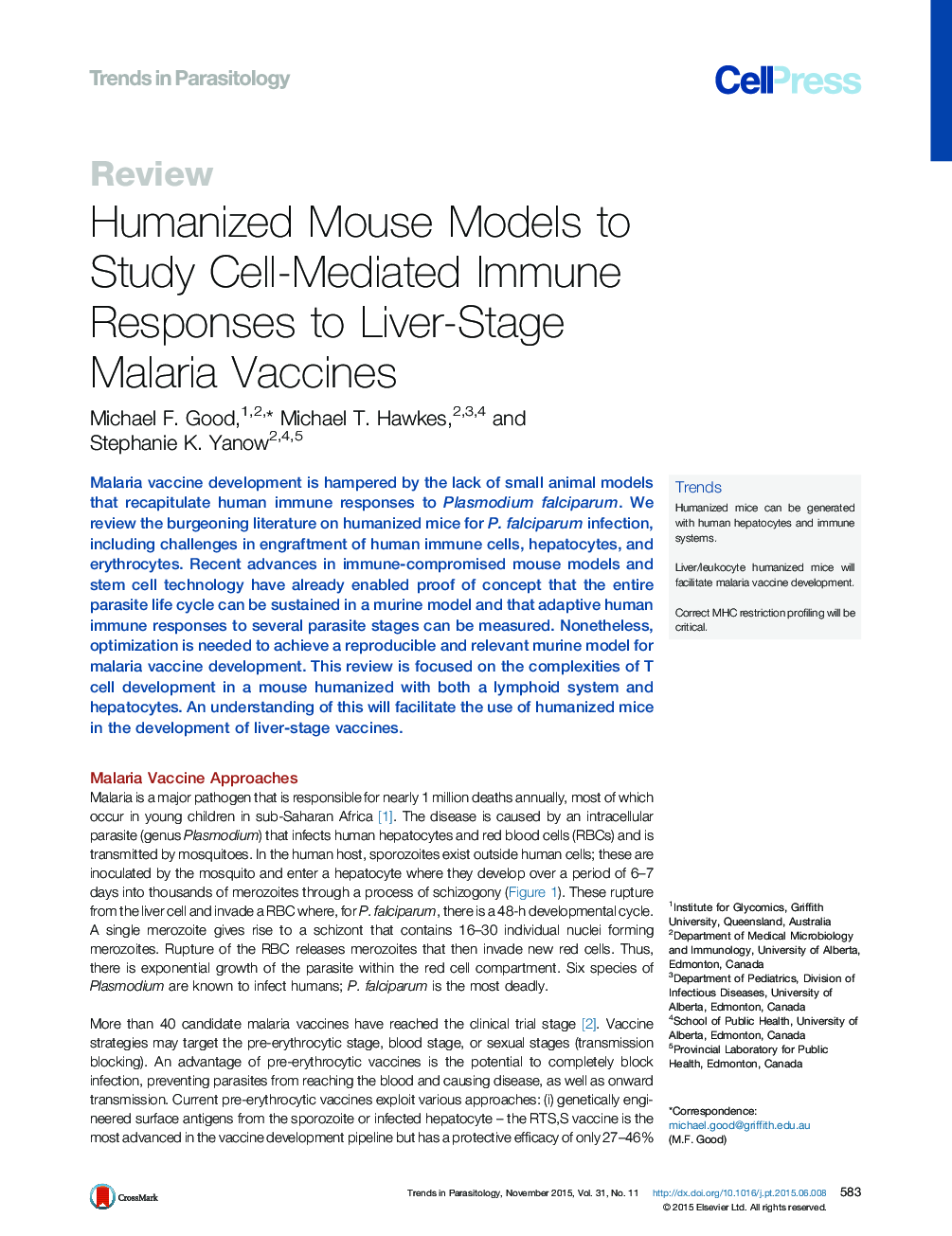| Article ID | Journal | Published Year | Pages | File Type |
|---|---|---|---|---|
| 3422894 | Trends in Parasitology | 2015 | 12 Pages |
Malaria vaccine development is hampered by the lack of small animal models that recapitulate human immune responses to Plasmodium falciparum. We review the burgeoning literature on humanized mice for P. falciparum infection, including challenges in engraftment of human immune cells, hepatocytes, and erythrocytes. Recent advances in immune-compromised mouse models and stem cell technology have already enabled proof of concept that the entire parasite life cycle can be sustained in a murine model and that adaptive human immune responses to several parasite stages can be measured. Nonetheless, optimization is needed to achieve a reproducible and relevant murine model for malaria vaccine development. This review is focused on the complexities of T cell development in a mouse humanized with both a lymphoid system and hepatocytes. An understanding of this will facilitate the use of humanized mice in the development of liver-stage vaccines.
TrendsHumanized mice can be generated with human hepatocytes and immune systems.Liver/leukocyte humanized mice will facilitate malaria vaccine development.Correct MHC restriction profiling will be critical.
